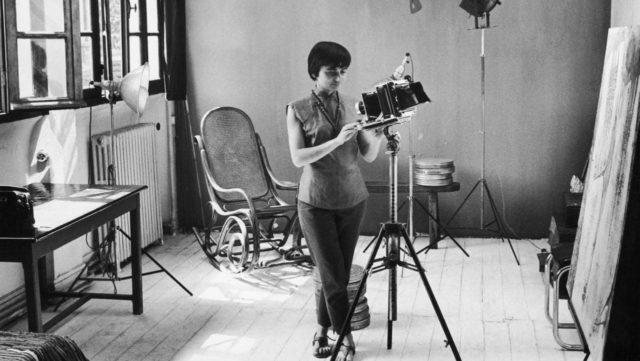
Agnes Varda is a Belgian-born film-maker who has spent most of her career in France, where she is said to have kick-started a film movement called French New Wave. As a result, it is no wonder that it has been announced in September of 2017 that she will be receiving an Academy Honorary Award for her contributions to film-making as a whole.
Here are five things that you may or may not have known about Agnes Varda:
Part of the French New Wave
The French New Wave was never a formal movement but encompassed a wide range of French film-makers from the 1950s and 60s with some shared aims. For example, they wanted to focus more on the current social issues of their times as opposed to the period pieces that were being churned out in those same times. Furthermore, they wanted to break with what was conventional to them, with the result that they were fond of experimenting with their chosen medium. Based on this, it should come as no surprise to learn that the French New Wave were an example of the European art cinema that was so opposed to classic Hollywood cinema.
To Be Exact, Part of the Left Bank
To be more exact, Varda was part of the Left Bank of the French New Wave, referring to a small number of film-makers who were distinguished by being older, more involved with other forms of art, and more interested in Bohemianism. In contrast, their counterparts in the same movement were more famous as well as more successful in a financial sense but also more conventional in their film-making because of their particular preferences. With that said, it is important to note that these two segments were not at odds at one another, as shown by the support that a Right Bank publication offered Left Bank film-makers.
Might Have Been Influenced By Auteur Theory
Some people believe that Varda was influenced by auteur theory, which is centered around the idea of a single artist called the auteur who controls all aspects of an art piece created through collaborative effort. As a result, the art pieces produced by auteurs are recognizable in an instant, whether by their choice of themes or by their stand-out styles. A lot of the film-makers in the French New Wave were influenced by auteur theory, which distinguished auteurs from the sort of film-making that they were rebelling against.
Used the Camera As a Pen
Varda is known for her use of marginalized protagonists. As a result, it should come as no surprise to learn that she is considered to be a feminist film-makers because of her frequent use of female protagonists in her films. Furthermore, it is interesting to note that she believes that all of the people involved in making a film should cooperate in order to ensure a more coherent theme, thus enabling the end result to deliver a much more powerful message than otherwise possible.
Signed the Manifesto of the 343
It is interesting to note that Varda was one of the 343 women who signed the Manifesto of the 343, which was a published statement by its signers that they had had an abortion in spite of the fact that it was illegal in France at the moment. As a result, they exposed themselves to potential criminal prosecution in exchange for emboldening other supporters of the right to have an abortion as well as the right to have free access to contraception, with the result that it was soon followed by a manifesto from 331 doctors supporting much the same aims. Ultimately, the Manifesto of the 343 contributed to the passage of the Veil Law that made it legal to have an abortion in France.
 Follow Us
Follow Us



